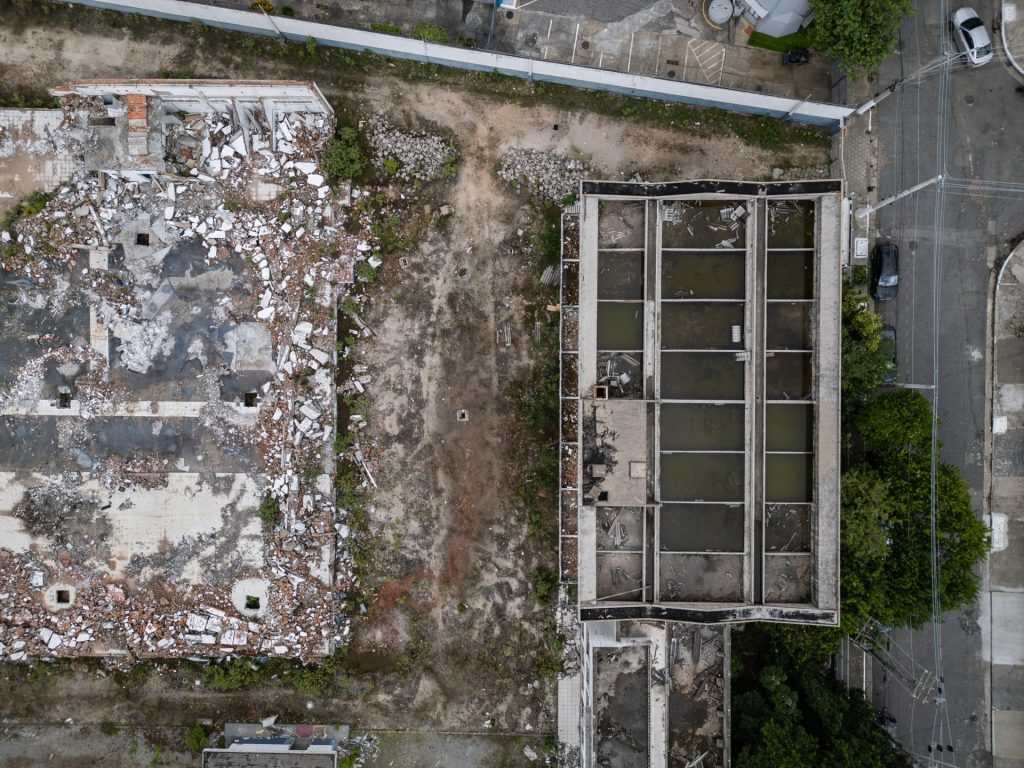Brazil tries to eradicate dengue mosquitoes after spate of cases

John Martin Cullell |
Sao Paulo (EFE). – Brazilian cities are on alert due to the spread of dengue fever, with the number of cases in the country exceeding one million this year. Sao Paulo, South America’s largest city, is constantly spraying and trying to raise awareness among residents about the danger, but the advice often falls on deaf ears.
“Minister of Health, fight dengue!” – municipal officials shout in front of a house in a working-class neighborhood.

Looking for mosquito breeding sites
The epidemiological surveillance team received word that a certain Mateus living there had tested positive for the disease, and they came to enforce the protocol: visiting all houses on the street in search of mosquito breeding sites and general fumigation.
After ten minutes of ringing the doorbell, Matheus’s aunt, Lucilyn Souza, answers the door. It turns out that the patient does not live there, but visits her often.
“He was really sick on Friday, but I saw him better yesterday,” she explains with a hoarse cough that she attributes to the flu.
Taisa Moura, the group’s coordinator, is unsure and insists on checking every corner of the house for buckets of standing water where the white-striped mosquito, which carries dengue fever, usually lays its eggs.
“This is an absurd number of cases. Today alone we had more of them than in the whole of February last year,” says the official, smeared with repellent and wearing a blue vest.

The disease, which causes high fever and muscle pain, has already caused 214 deaths across the country, with a further 687 to be confirmed.
Faced with the threat, the Sao Paulo city council proposed purchasing 30,000 liters of insecticides and fivefold increasing the number of agents to patrol the streets and prevent the spread of infection.
Municipal experts estimate that about 80% of mosquito breeding sites are inside homes, so door-to-door efforts are needed. Despite this, in 30% of cases neighbors do not allow inspectors in.
Disturbing neighbors
In the house attached to Souza, Cristina del Duque wants to open the door for them. This petite 58-year-old woman tells them she has hardly gone out since Covid-19, much less now given what she sees on television about the rise in dengue cases.
There are no plants, but there are plenty of water bowls for two dogs and a dozen canaries, and an aquarium for three fish.

“But I change the animals’ water every day,” he explains when asked by Mura, who has already approached the aquarium with a cell phone flashlight in search of larvae.
Christina regrets that neighbors leave garbage on the street and water accumulates: “I go out to sweep to remove the garbage, because the mosquito gets into places where you least imagine.”
Opposite attitude towards dengue
Dengue is also a cause of tension in the house opposite, where the mother-in-law and daughter-in-law have opposing views. Reinilda Pereira, 54, says she takes great care of herself because she had a daughter who died of dengue fever as a child, but seems to be worried about her mother-in-law’s laxity.
“I think there are maggots in one of your buckets,” he whispers to one of the agents.
Moura looks critically at an uncovered bucket of water on the roof and asks 69-year-old Ana Valdete to always cover it. Distracted, the mother-in-law says under her breath, “If you spend the whole day worrying, you’ll end up getting sick.”
“Even if you warn them, there are people who still have standing water without closing it, it’s an exhausting struggle,” Moura comments later, annoyed but not resigned.
The sound of the engine announces the arrival of the fumigation machine. Very soon the street smells of mint, the smell of insecticides, and the neighbors breathe a sigh of relief that the mosquito threat has been eliminated for the time being.